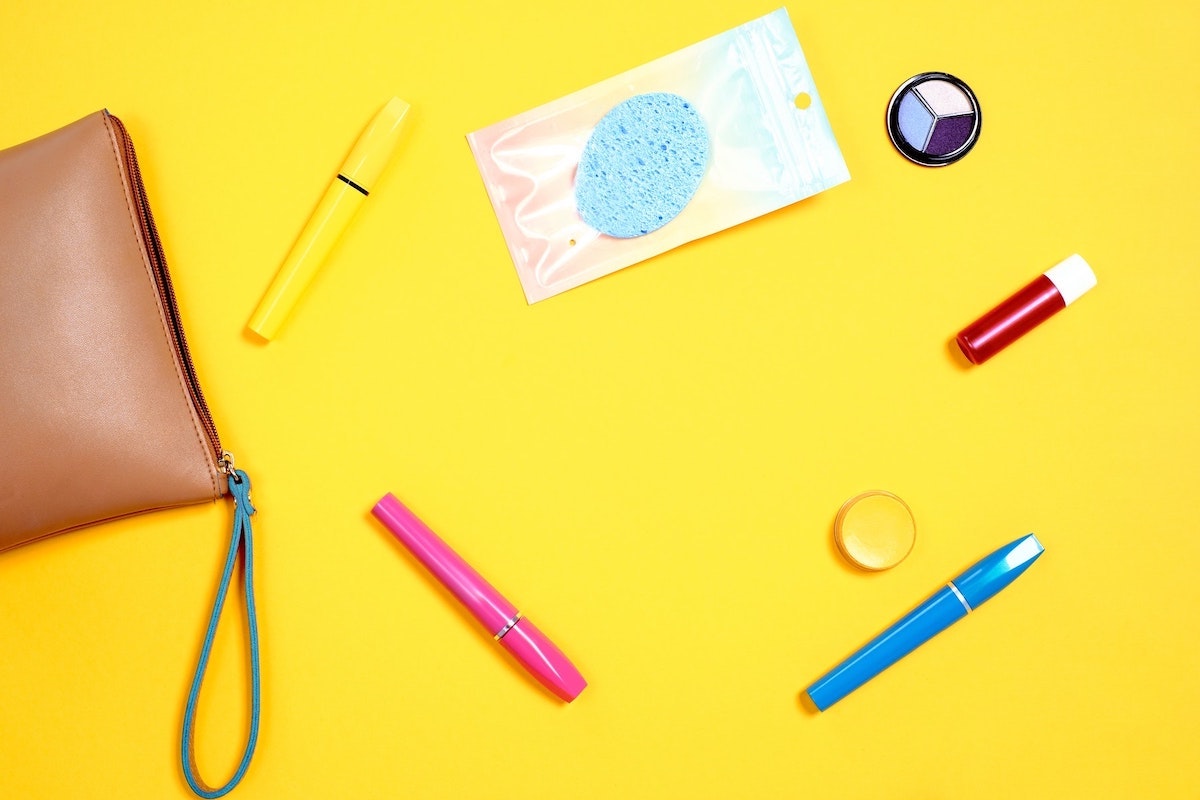Hormone depletion and hormone imbalance is happening more frequently and often at a younger age than ever before for many people; men and women alike.
The reasons for these imbalances in the body are many and varied and we’ve enlisted the help of health expert, Fiona Caddies to decipher the hormonal minefield and talk us through the most common signs and symptoms. For women in particular, hormone imbalance can be addressed with simple proactive steps to reduce the impact and incidence in your own life. This is one article EVERYONE should read!
Hormone Imbalance: This Isn’t Just About Menopause Anymore
When many people talk about fluctuating hormones or hormonal problems, the mighty M-word, ‘menopause’ springs to mind. While menopause is indeed a landmark event in a woman’s life that causes dramatically changing and declining hormone levels, for many people, hormone imbalance starts many years, even decades before the onset of menopause. In trying to find some humour in what is an often difficult and painful time in a woman’s life, some have even likened many hormone imbalance/menopause complaints to being the ‘seven dwarves of menopause,’ as illustrated in this popular cartoon parody below:
Without making light of any of the struggles associated with menopause, this cartoon is also educational in that these symptoms can be common to hormone imbalances in general. There are of course many others, including: weight gain, fatigue, infertility, lowered or changing body temperature, fibroids, fibrocystic breasts, irregular or changing periods (from your own previous menstrual ‘norm’), endometriosis, ovarian cysts, PCOS, irritability, mood swings, and more.
Too often we’ve been taught to believe that these are just things that most women ‘have to put up with’ and they are part of ‘normal life.’ In reality, there is little that is truly ‘normal’ about them. But, when our bodies are in hormonal balance, these types of symptoms should be minimally present, if at all.
Interestingly, in cultures that are still largely more traditional in terms of lifestyle, pace of life, minimal exposure to toxins, processed/refined foods etc, it is apparent that menopause is often marked by a LACK of any real symptoms. Unfortunately cultures like these are on the decline as more and more developing countries are adopting more Western lifestyles and influences and sadly, losing aspects of their traditional lifestyles (which, often times, may be much ‘wiser’ than our ‘modern lifestyle’ tends to be).
The pace of life seems to be ever-increasing and the number of toxins and chemicals we are exposed to also continues to grow while we all strive to be mindful of taking steps to try and keep ourselves in better hormonal balance. It is important to realise that all of us, men and women alike, depend on our hormones for vitality, regeneration, and health and as these decline and/or become imbalanced, it’s no great surprise that our health can take a nosedive too.
So what can you realistically do to encourage better hormonal balance in your life?
Thankfully, there are a number of relatively easy steps you can take, starting with:
1. Avoid soft plastics and especially avoid microwaving with soft plastics (avoid microwaving period!). Many plastics are full of hormone disrupting agents such as BPA,which can leach into the contents of these bottles and containers, thereby exposing you to them directly through your consumption of their contents. These substances can have damaging effects on your endocrine system and are relatively easy to avoid.
2. Be mindful of the personal care products you use and purchase. Many cosmetics and bath and beauty products have little to no regulation over their ingredients and, you guessed it, they may contain hormone disrupting agents such as parabens, excessive levels of heavy metals that can wreak havoc with thyroid and other hormone production, and other noxious substances.
3. Avoid all foods with added hormones and antibiotics and minimise artificial stimulants. This means purchasing free range, organic, and/or kosher meats, wild-caught fish, and hormone-free, preferably grass-fed dairy products. Put simply, if the animals are consuming these items, you will too if you eat their flesh or milk products, so be mindful. As for stimulants, sugar and caffeine are two of the most regularly abused substances by most people. Both tend to provoke cortisol secretion and as a result can also yield wild swings in insulin levels, further provoking dysregulation and a ‘roller-coaster’ ride when it comes to energy levels. Herbal support is a wiser choice if you feel fatigued or need a boost when it comes to coping with stress. Widely-used herbs such as ashwagandha, rhodiola, and many others can help as can having regular snacks containing some fat and protein to encourage more consistent blood sugar levels.
4. Minimise and control your stress. Actively structure your day as much as possible to take breaks, try and recognise, minimise and/or control your stressors, to ensure that you are not in constant ‘fight or flight’ mode. Hormonally, we are not meant to be in a highly stressed state continuously. This wears out our adrenal, thyroid, hypothalamus axis (HPA Axis), puts extra pressure on the body to divert hormone production from progesterone into cortisol (setting up sex hormone imbalance), and can also increase odds for insulin resistance and weight gain. Remember, that excess adipose (fat) tissue also acts as its own ‘hormone gland’, often producing extra estrogen and further fueling hormone imbalance. So staying at a healthy body weight for your height and bone structure will also help support a situation that won’t promote further hormone imbalance.
5. Exercise! Exercise is, of course, a great way to de-stress but it also helps to burn off excess cortisol in your body. Exercise also pumps up growth hormone production, which helps us to regenerate and repair our body more effectively and efficiently.
6. Practice deep-breathing and meditation on a regular basis. It is no coincidence that many of the Eastern meditative arts such as yoga, qi gong, tai chi and the like, place a huge importance on attending to the breath. By simply shifting our patterns of breathing from typical shallow chest breathing to deep, diaphragmatic breathing, we actually shift our brain-wave patterns, better oxygenate our bodies, help to remove metabolic wastes, and down-regulate production of cortisol and stress-related neurotransmitters. This happens remarkably quickly too so should be incorporated into your daily mantra! A simple 5-15 minute session of deep breathing can have a considerable impact on your physical and mental state – for the better of course!
7. Be mindful and careful with your oral contraceptive use. While every woman’s right to choose how she manages her reproductive health is valued and promoted as highly personal, it is important to be informed and educated on the potential side effects and risks of certain contraceptive options. One issue that unfortunately frequently arises with prolonged use of birth control pills is hormonal imbalance. These pills, of course, work by disrupting the natural ebb and flow of hormone secretion in a woman’s cycle so it isn’t at all surprising that hormone imbalance can result from their use. What is also important to note is that the liver must metabolise our hormones into metabolites that are typically excreted through the urine and bowels and over time, these prescriptions can stress the liver, thereby affecting its ability to successfully ‘detox’ our hormones, and can further increase the risks of longer term hormone imbalance. Remember, we also need our liver to help us detox all kinds of toxins, medications, etc. so anything that impedes the liver’s function can have significant, long-ranging effects on our health. This may be especially important for women who are planning to have children later on in that after they stop taking the contraceptive pill, they may need a period of adjustment to try and re-regulate their cycles and sometimes, this can take many months, especially if a woman has been on the Pill for years. Working on supporting the liver through the use of appropriate supplements, detox-promoting foods and beverages, etc. may be especially helpful in this situation.
8. Be good to your liver! Using liver supportive herbs and bitter foods such as dandelion greens, cruciferous vegetables, milk thistle, eggs, burdock root, and others is a great way to help support your liver to do its essential job of helping your body to detox and metabolise those excess hormones optimally!
For individuals dealing with significant fatigue and other hormonal imbalance issues, it is recommended that you consult with a qualified practitioner, holistically-oriented health expert or specialist to help you explore and discuss your treatment options.
Are you struggling with hormonal imbalance? Or have you had experiences rectifying these? Tell us your thoughts below…

















